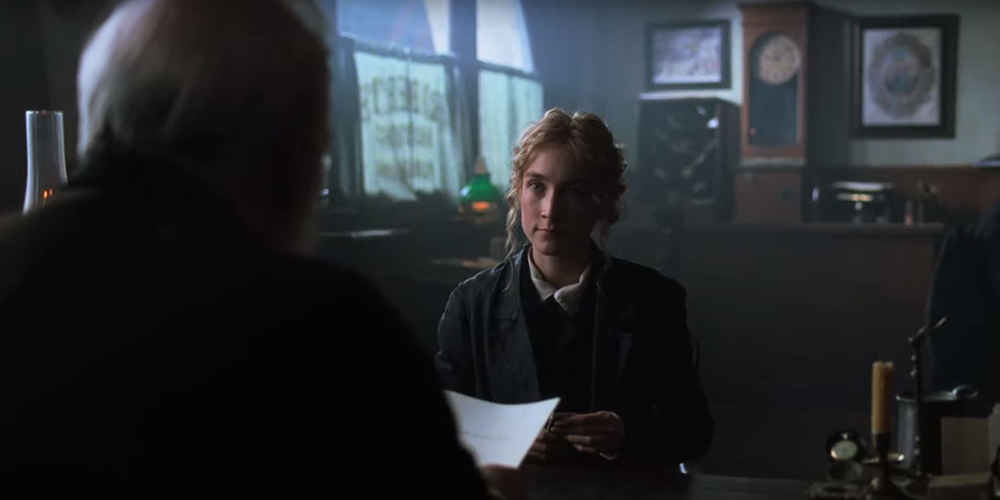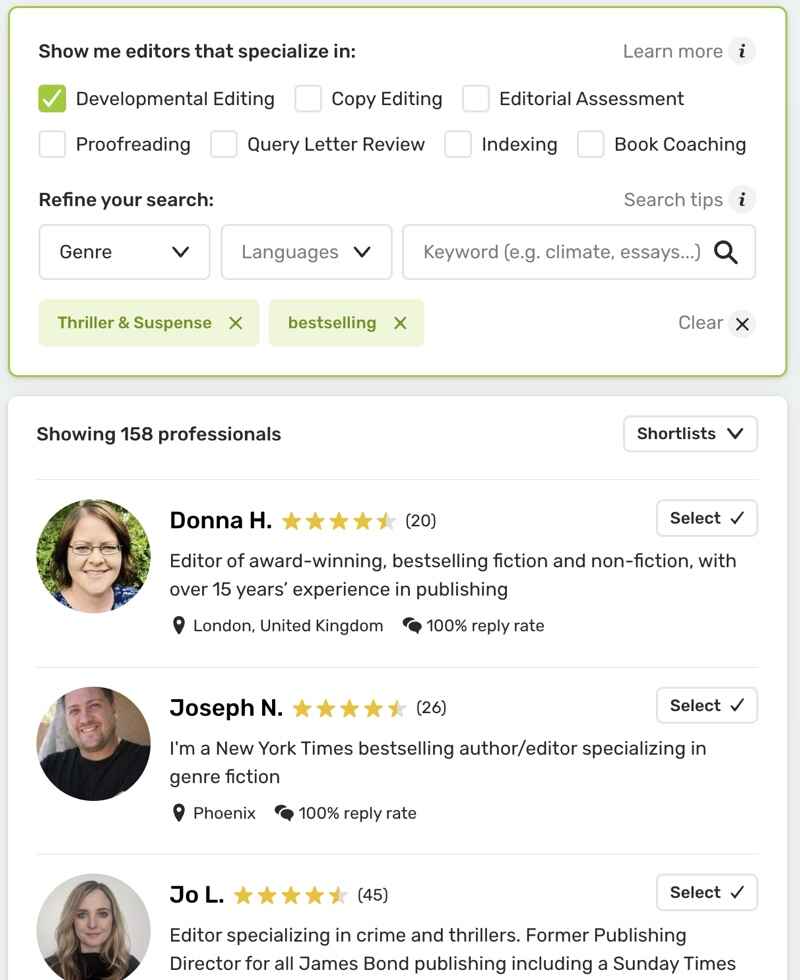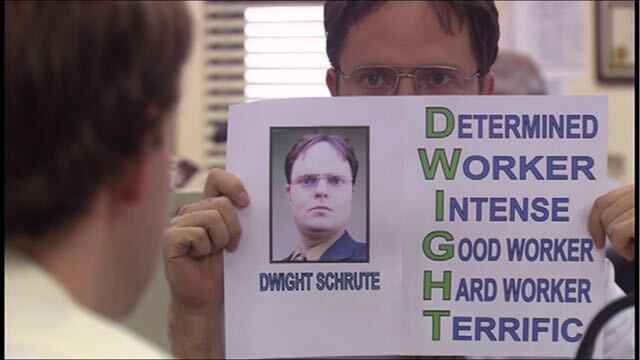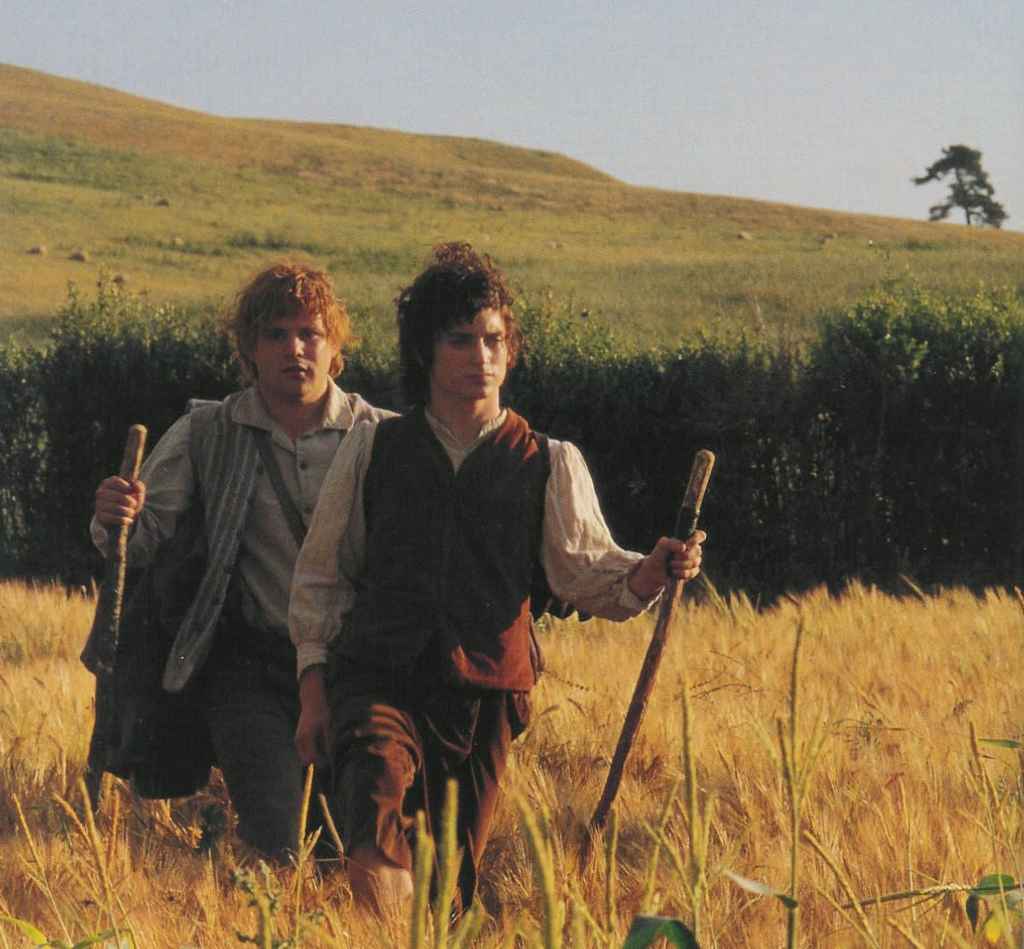Guides • Understanding Publishing
Last updated on Jul 19, 2022
How to Find an Editor Who's Perfect For Your Book
About the author
Reedsy's editorial team is a diverse group of industry experts devoted to helping authors write and publish beautiful books.
More about the Reedsy Editorial Team →Martin Cavannagh
Head of Content at Reedsy, Martin has spent over eight years helping writers turn their ambitions into reality. As a voice in the indie publishing space, he has written for a number of outlets and spoken at conferences, including the 2024 Writers Summit at the London Book Fair.
View profile →With more and more experienced editors hitting the freelance market (thanks to online networks like Reedsy), finding suitable, talented, and experienced editors for just about any writing project is easier than ever.
Having overseen thousands of collaborations between authors and editors, we know that finding that perfect professional is straightforward — as long as you clarify your priorities, pay attention to details, and communicate your expectations.
Here's how you can find a professional editor for your book:
1. Start by identifying the editing services you need
Before you even start looking for an editor, you first need to understand your manuscript's state. Do note that an editor comes in at the point where you can no longer improve your own work and have already done your best at editing it yourself.
Professional editing consists of several rounds — layers that get finer and finer the closer you get to publication. To understand our definitions of the services editors offer, head back to the first part of this guide, where we explain the five major types of editing. In (more or less) the order you’d need them, these are the services offered by editors:
- Editorial assessment;
- Developmental editing;
- Copy Editing;
- Proofreading;
- Fact-checking.
How you intend to publish your book will determine what kind of editorial services you will need. Weigh up your options in advance by reading our comprehensive guide to the self-publishing vs. traditional publishing dilemma. You can take this short quiz to find out what kind of editing you need at the moment, or read our full descriptions of the two publishing paths and their editing requirements below.
✅
Is self-publishing or traditional publishing right for you?
Takes one minute!
If you’re publishing traditionally, focus on story and queries
If you plan to publish your book through traditional means, your first step to securing a book deal involves finding a literary agent. Research relevant professionals in our directory of literary agents — once you’ve found some suitable candidates, you’ll need to send them a personalized query letter that will stand out from the rest of the submissions in their slush pile.
You will also be expected to include a manuscript sample (the length of which will vary depending on each agent’s guidelines). In preparation for contacting an agent, you will find it helpful to receive a round of developmental editing or, at the very least, an editorial assessment. This may lead to major plot revisions, but it will leave your manuscript much stronger.
Next, you can get your query letter reviewed by an editor to ensure that it adheres to industry conventions. This editor can help you pitch your work to communicate what’s unique and exciting about it.

Since you’ll be sharing the beginning of your book with agents, you may wish to submit your sample (the first couple of chapters) for a round of copy editing. This is not strictly necessary, but it can assure you that your sample is as good as it can be.
If your agent is successful in getting you a publishing deal, an in-house professional will be in charge of editing your work with you. As part of your deal, you’ll progress to another developmental edit and full copy edit.
If you haven’t secured a publishing deal and/or would prefer to have complete creative control over your work, read on to understand the process for self-publishing authors.
🖋️
What kind of editing does your book need?
Takes one minute!
If you’re self-publishing, give it the works
If you’re planning to self-publish, you won’t need a query letter review, as you won’t require an agent. After your self-edit, you can progress straight to a developmental edit.
Once suggested changes are implemented, reread your manuscript to confirm everything’s in order. After that, move on to a couple rounds of copy editing, fact-checking (if yours is a project that requires it), and a last round of proofreading to eradicate all remaining typos and grammar goofs.
2. Research book editors with strong work experience and referrals
Now you know what your manuscript needs, it’s time to look for some candidates.
Reedsy’s marketplace
Reedsy has done the hard work for you: our selective marketplace features some of the most experienced editors in the industry (think Big 5 publishers and bestselling titles). Only the top 1% of professionals who apply are accepted on our marketplace, and we always verify their work history. With us, you’re leaving very little to chance. To find the most suitable editor for you, filter by genre and the kind of editing service you need.

On each editor’s profile, you'll find an overview of their experience and approach. You can see past titles they’ve worked on and check out reviews left by writers they’ve worked with previously. Why not sign up for free and have a browse? You don’t need to hire an editor to contact them for more information!
Hire an expert
Kathleen F.
Available to hire
Fiction editor offering 5-star service for various editing stages and query materials. Member of Editors Canada. Also a literary agent.
Patrick B.
Available to hire
Accomplished developmental editor with 19+ years of progressive publishing experience in graphic novels and illustrated/gift books
Margaret D.
Available to hire
Published novelist and memoirist with extensive editing experience who takes pleasure in assisting other writers solve problems.
Beware of amateurs or ill-suited professionals on the web
If you look for editors beyond Reedsy, be wary of amateurs or irrelevant professionals. The internet is crowded with inexperienced editors with slick websites. You’re looking for the best editor for your project, not the editor with the best homepage. It’s a pretty important distinction.
Also, be careful with freelancer sites Upwork and Fiverr. These sites list people who might be totally unsuitable due to their lack of relevant publishing experience. You need to find someone with experience editing books in your genre, not just any editor, as Phillip Goodrich discovered when his newspaper editor brother turned him down.
Q: I don't respond well to criticism. How can I find out if an editor's communication style will be right for me?
Suggested answer
First, a little tough truth: if you wish to be publishing for any length of time, you will undoubtedly encounter criticism. This could come from an editor at a publishing house, an editor helping improve your work, or reviews from readers on online retailers. Feedback from professional sources, such as myself and others here on Reedsy, are there to help improve your work, and help you and your book be as strong as it can be.
That out of the way, a few ways you can evaluate whether an editor's style meshes with yours:
- Read feedback from other authors in the editor's reviews
- Read the description of how an editor returns feedback. Some editors include this in their bio
- Reach out to the editor directly to ask how they like to communicate. I always love hearing from authors and getting their goals and preferences so I can determine how we can best work together
- Ask for a sample edit. Some editors will do a short sample edit to give you a taste of how they'll work on your book.
Every editor has their own opinion on giving feedback, and having clear communication upfront, during, and after the process, can help both you and the editor be satisfied with the collaboration.
Sean is available to hire on Reedsy ⏺
Nobody responds well to criticism! Nor should you! An editor should offer you a critique, not criticism. Admittedly, it can be hard to tell the difference when on the receiving end. If, however, you feel that an editor is telling you that something is bad, as opposed to how it can become better, that's a problem.
Solution: Ask for an editing sample before making a hiring decision. Sometimes I'll send a few pages from a previous project (with the author's permission) but ideally, if time permits, I'll edit a couple pages from the sample the author included in their Reedsy request. After all, my work product isn't a finished book; it's the changes and comments I make to the manuscript. Testimonials are great but without this sample, you'd be taking the quality of my work product on faith.
Am I giving away product? I guess, but I've been known to assemble a multi-course feast from Costco samples, so putting a few minutes into an editing sample seems like a fair way of paying it forward.
Eric is available to hire on Reedsy ⏺
I completely understand—receiving criticism on something as personal as your writing can be tough, and finding the right editor makes all the difference. To start, you can request a sample edit, which lets you experience how they deliver feedback firsthand. This gives you a chance to see if their approach feels constructive, respectful, and supportive, or if it might come across too harshly for your comfort. I’d also suggest having a candid conversation with potential editors; let them know that criticism can be challenging for you and ask how they handle sensitive feedback. A good editor will be receptive, flexible, and reassuring, offering explanations and encouragement tailored to your needs. Reading testimonials from past clients can also provide insight into an editor’s style—look for comments that speak to their empathy, collaboration, and communication skills. Ultimately, finding someone who respects your creative vulnerability and is committed to helping you grow will transform what can feel like a nerve-wracking process into a genuinely rewarding partnership. It’s about finding someone who not only edits but empowers.
Eilidh is available to hire on Reedsy ⏺
I give free samples so you can see my commenting style before you decide if we are a good fit. Be assured, my intention is to advocate for readers and help your words reach your audience smoothly; so my communication with you will always respect your position as the author.
Alex is available to hire on Reedsy ⏺
In your brief, explain this about yourself, and ask for sample edits. When you receive a sample, if a particular suggestion is troubling, ask the editor a good question about it.
Let's say the editor changes your dialogue tags like "remarked" or "sighed" or "countered" to "said" across the board.
Write to them saying, "I thought it was best to avoid repetition and use more descriptive terms. Can you explain why you recommend 'said' instead?"
A good editor will have a good-humored, honest, helpful, and encouraging response, like this: "Yes, it seems like it would be better to use varying terms, but 'said' and 'asked' just melt into the background and highlight what the character is actually saying. Sure, sometimes you want to use other terms for variety, but use them sparingly and when you really need them."
Cindy is available to hire on Reedsy ⏺
3. Shortlist editors in your genre and price range
Now you’ve understood how to find an editor, it’s time to sift through candidates and put a shortlist together.
Prioritize editors with experience in your niche
Hopefully, the editors you’re looking at all have extensive work histories. To find the best ones for you, whittle them down to editors with experience relevant to your project. Make sure you only contact people who have worked in your genre or at least state an interest in your subject. Relevant experience will always be more important than the number of years of experience — although you ideally want to find someone in the perfect sweet spot of lots of relevant experience.
Don’t choose someone just because they have a lot of reviews or have worked with impressive authors. A fantasy editor may be excellent at editing fantasy, but they’re less likely to be a wizard(!) at editing memoirs or nonfiction books. If you ask a professional to work outside their area of expertise, they likely won’t agree anyway — so save yourself the time and filter these people out early on.
Q: Do editors sometimes get tired of working within the same genre?
Suggested answer
It depends! Editors' experiences with genre fatigue can vary widely and often depend on their individual interests and work dynamics. For many, specializing in a genre is a source of genuine excitement—it allows us to hone expertise, stay deeply in touch with genre trends, and collaborate with authors who share a love for that storytelling style. Every manuscript, even within a familiar genre, offers fresh characters, twists, and emotional beats, which keeps the work engaging and rewarding.
However, some editors might occasionally crave a shift. When that happens, a change of pace—whether taking on a different genre or exploring a new sub-genre—often does wonders. And many editors actively manage this by blending projects, which brings variety and keeps the creative juices flowing. The key lies in passion. If we love what we do, even in a specific niche, the excitement for shaping stories and elevating an author’s voice outweighs any potential fatigue. At the end of the day, every story brings new potential, and that’s what keeps many of us hooked!
Eilidh is available to hire on Reedsy ⏺
I can only speak for myself, but I consistently enjoy editing romance, historical, inspirational, comedy, thriller, and non-fiction manuscripts.
Melody is available to hire on Reedsy ⏺
Feedback style matters

An editor’s personality will come through in their bio and description of their professional experience. No editor will shame you for your writing, but some people's style is more blunt and honest, whereas others prefer to be gentle and kind with their edits. It's much like the personal trainers you see at the gym sometimes: some will yell, "DON'T YOU DARE GIVE UP," while others cheer their clients on with "You're almost there!" Just from looking at an editor's profile, you'll probably get a sense of whether the two of you will get along.
If this is still sounding unclear, the final part of this guide contains some actual examples from our editors' profiles, so head there to see how you respond to those voices!
4. Reach out with your manuscript synopsis
When you contact editors on Reedsy, we offer a fill-in-the-blank brief to send potential editors, so you know you're not missing anything important. Perhaps the most important part of this brief is your synopsis: after all, literary editors are readers first and foremost — and nothing will get them excited about working on your manuscript more than a crackerjack pitch.
We have a full guide with tips for hooking agents and editors with your synopsis. But in short, you'll want to focus on:
- Your main character and their motivations;
- The conflict they find themselves in; and
- What makes your book unique (setting, tone, plot, POV)
Of course, you'll also need to pack your brief with more basic information to help prospective editors know whether they can take you on as a client. These details include:
- Your working title;
- The length of your manuscript;
- The editing service you need;
- Your genre;
- A loose timescale for the project;
- A personal introduction to yourself and your project;
- A short excerpt of your project;
- Optional: additional information about your intended target market
You can request a sample edit if you want to know more about a particular editor’s style. Some editors may be too busy to do this — if this is the case, you can look for information in the “Reviews” section of their Reedsy profiles. Previous clients will usually describe their collaboration with an editor in ways that can be useful to you.
Don’t forget to sell yourself

You must make a great impression when introducing yourself and providing a synopsis of your project. Let editors know why your idea is special, why you’re so passionate about it, and why (if applicable) you're particularly qualified to write it.
If you have a particular connection to your story, e.g. you’re a lawyer writing a courtroom thriller, that’s something you should bring up. If nothing biographical makes you stand out, emphasize your love for other books in your category; explain, for instance, that as a lifelong fantasy reader, you realized that there’s a gap in the market your project would fill.
Top Tip: Try to communicate an understanding of your book's place within its category. If you can namecheck suitable competitive titles, that can help pique an editor's interest.
Keep this introduction concise, enthusiastic, and informative; the goal is to offer a first taste that will excite an editor about your book.
5. Finalize the details of the project with your editor
Once you’ve heard back from everyone, it’s time to finally narrow it down to that perfect match. Here are a few more factors you should weigh:
Thoroughness
You can see how thorough an editor tends to be from the detail and expansiveness of their ideas. A lot of detail indicates enthusiasm about your project — exactly what you want to see!
Availability
Some editors may not be available to devote all of their time to your project right now. They may already be juggling many projects, or simply be on hiatus. If your project is time-sensitive, you’ll have to choose another editor.
Money
You'll likely receive similar quotes, but if your budget is restricted, you may have to factor in small price differences.
That said, if you’re really eager to work with a particular editor, talk to them about alternatives. As Reedsy co-founder Ricardo Fayet advises, “Ask if you can make the payments in installments, or if there’s room to adjust the scope of work to lower the price. Someone you really want to work with usually really wants to work with you too.”
Communicate your expectations clearly

The best collaborations happen when both parties clearly understand what they’re expecting. So, circling back to our introductory advice, make sure you establish these expectations early to avoid misunderstandings! Be prompt, and professional, and convey your expectations with precision.
On Reedsy, any messages you exchange are saved to ensure you’re always on the same page. In contrast to phone conversations, you’ll have a full record of your communications to fall back on.
For tips on how to get the most out of your collaboration with an editor, check out the final section in this guide.
Remember, editors are incredibly valuable collaborators for both experienced and new writers, so choose yours carefully. Do your research, and you’ll see that figuring out how to find an editor is really not that difficult — and once you find them, they’re going to help shape your stories into books that will touch the lives of many readers.
Sounds good, but are you wondering what it’s all going to cost? Head to the next post in this guide for all the answers you need.

